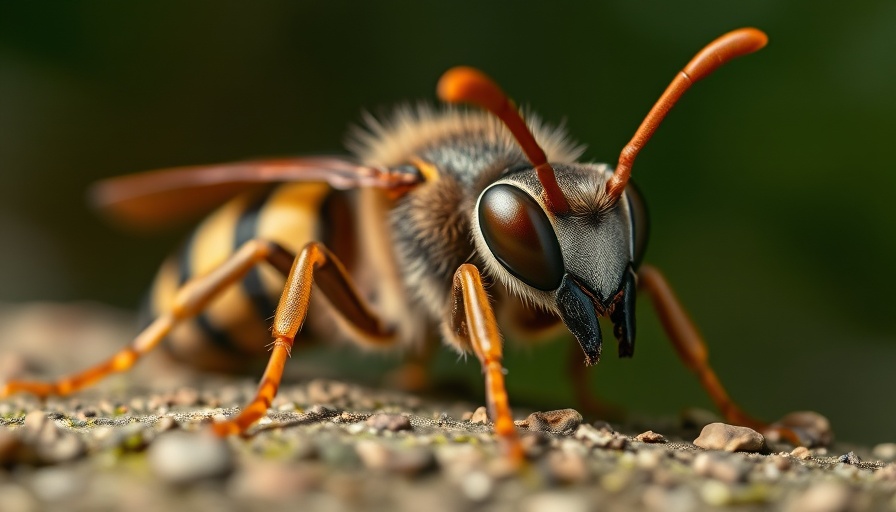
Unveiling the Threat: Asian Hornets and Their Impact on Biodiversity
The invasive Asian hornet (Vespa velutina) is making waves in Europe, not just for its well-documented predation of honeybees, but for its alarming diet, which has been revealed to encompass over 1,400 different species. This discovery raises serious questions about the ecological impacts these hornets can have on native ecosystems, particularly through their predation of crucial pollinators.
The Vast Diet of the Asian Hornet
Researchers from the University of Exeter recently conducted an extensive analysis of hornet larvae, revealing the presence of 1,449 species in their guts. Their study, published in the journal Science of the Total Environment, analyzed samples from France, Spain, Jersey, and the UK. Among the species found, bees, wasps, flies, butterflies, beetles, and even spiders were included, indicating that the Asian hornet is an opportunistic predator who adapts its diet based on availability.
Particularly concerning is the fact that 43 out of the 50 most frequently identified prey species are known pollinators, like the western honeybee (Apis mellifera) and various bumblebees. The research emphasizes how the hornet poses an extra threat to vulnerable insect populations already facing decline due to habitat destruction and pollution.
The Impact on Pollinator Populations
The implications of this research extend beyond mere academic interest. With many ecosystems in decline, the Asian hornet's rapid spread since its accidental introduction to Europe in 2004 poses significant risks. The hornet can kill up to 50 bees a day, making it a formidable threat to beekeepers and agriculture alike. Pollinators are essential for crop productivity, and if their populations dwindle, it could lead to ecological imbalances and reduced agricultural yields.
As noted in the research, “Most insect populations are in decline due to factors such as habitat destruction and chemical pollution. The expanding area inhabited by Asian hornets poses an extra threat,” says Siffreya Pedersen, the lead author of the study. This reflects a dire situation for biodiversity, as the intricacies of insect interactions are crucial for maintaining ecosystem health.
Understanding the Broader Threat
Invasive species like the Asian hornet can wreak havoc not only through predation but also by altering interactions within food webs. A study mentioned in The Guardian emphasizes the flexibility of the Asian hornet as a predator, indicating its potential to disrupt local dynamics. With a diet that varies across seasons and regions, the hornets adapt to exploit available resources, worsening competition among native species.
Another study from ScienceDirect discusses how the presence of the Asian hornet can affect floral visitation rates of other pollinators, suggesting that their presence could decrease overall pollination efficacy. The ramification of this is profound; reduced pollination success can lead to diminished fruit and seed set in flowering plants, further straining already vulnerable ecosystems.
Conservation Concerns and Action Steps
The rapid encroachment of the Asian hornet into the biodiversity landscape of Europe shouldn't be solely seen as a local problem. It serves as a reminder of how interconnected our ecosystems are and highlights the need for preventive measures against invasive species. The combined threat of chemical pollutants and habitat loss means that native ecosystems require urgent protection strategies.
As individuals and communities, awareness is the first step toward action. Supporting local biodiversity initiatives, sustainable agricultural practices, and public education campaigns about invasive species can help mitigate the impact of intruders like the Asian hornet. Together, fostering habitats that support diverse wildlife may create resilience against such invaders.
A Call for Collective Action
With ecological threats mounting, it's vital to rally for actionable insight. Engage with local environmental groups, support conservation efforts, and educate yourself and others about the importance of maintaining biodiversity. The health of our ecosystems is tied directly to the health of our communities and eventually to human well-being. Let’s become advocates for our native species and work collaboratively to safeguard our environmental heritage for future generations.
 Add Row
Add Row  Add
Add 




Write A Comment